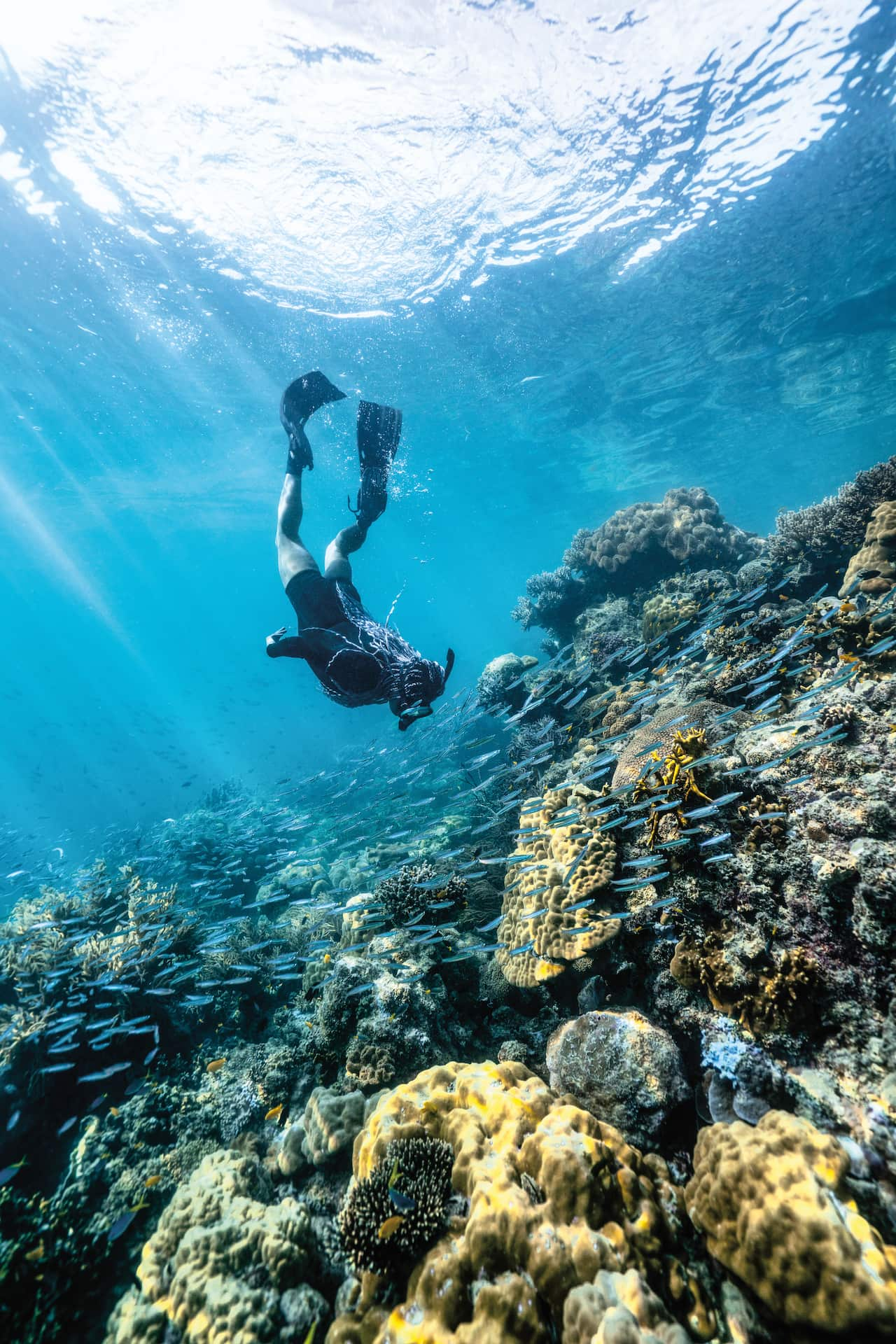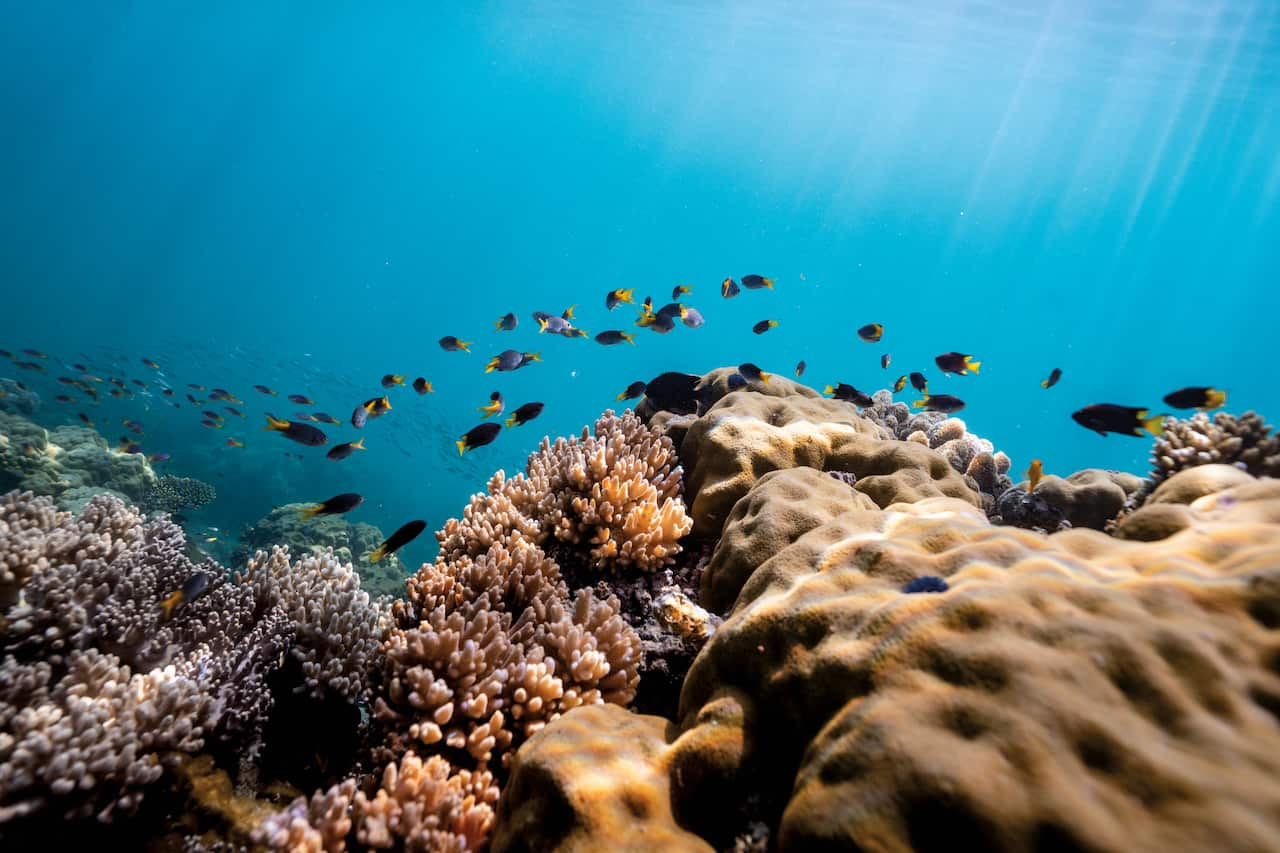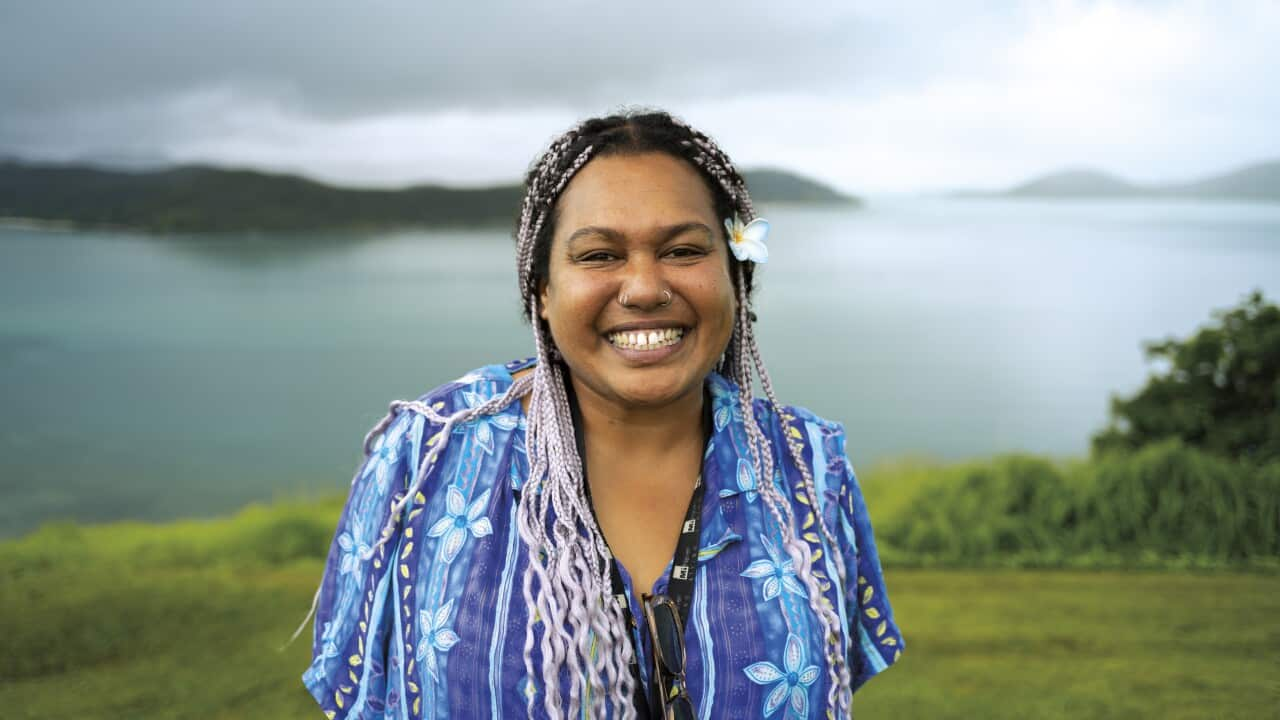As a young girl, Tishiko King’s great athe (grandfather) used to sit with her overlooking the ocean as the sun lowered and say: “If we look after the ocean, the ocean will look after you, protect you and return you home.”
King admits she didn’t quite understand what he meant at the time, but now as a marine biologist and an advocate for protecting our oceans she realises that lesson set the foundation in her heart for what she wanted to do as her life’s work.
Today King, in partnership with Patagonia, has released ‘Sea Country (Malu Lag)’, a documentary that follows her journey from her island home of Masig in the Torres Strait to the United Nations Climate Conference in Dubai in 2023 for COP28 and her mission to centre First Nations people in climate talks, the power of healing the ocean and the resilience of First Nations people on the frontlines of the climate crisis.
King calls the film a love letter to her home.
“[The film] is about advocating for the protection of my community’s ancestral borders and culture in the face of the crisis that we’re all feeling,” King told NITV.

King says ‘Sea Country’ is also about the importance of preserving cultural heritage.
“It really highlights the connection between our relationship with the ocean and really emphasising the role and the importance of traditional knowledge when talking about caring for Country and stewarding protection for our environment and biodiversity,” said King.
“For First Nations people it’s our land and sea and sky Country.”
King said she wanted to amplify the people and the voices that have been on the frontlines and advocating for change for decades.
“The climate crisis doesn’t stand alone, it cuts across housing, health, justice and culture,” said King. “I think that with all the pressing challenges we are already facing… right across the globe, climate is only going to perpetuate it. It compounds every other pressure that communities are facing and that story needs to be told.”
King said traditional knowledge and practices are crucial for understanding not only the impact of climate change on our marine ecosystems, but for creating solutions, and she has seen the changes in the Torres Strait unfold firsthand.
The islands have already seen sea level rise, flooding, coastal erosion and coastal inundation.
This is despite, unsurprisingly, the Torres Strait Islands contributing almost nothing to global greenhouse gas emissions.
Masig is surrounded by reef structures but as sea temperatures rise, marine ecosystems shift, these reef structures change and the fish that are usually there that Torres Strait Islander people depend on begin to disappear.
King said this means traditional practices and knowledge are being impacted as well as sea Country.
“We have to travel further and harder to hunt, or it’s a disconnection of our practices if you don’t have access to a boat, and therefore we’re becoming more dependent on diesel because you have to pay for that to get out there and so there’s those indirect impacts of when protecting marine biodiversity and advocating for our rights and recognition,” said King.
When King travelled back to Masig in 2020, after 20 years, she saw just how much the island had changed and the once flourishing environment that had nurtured her totem, the dugong, had disintegrated.
“Now we don’t really get a dugong population there which we know, when these are our totems and this is how we care and look after, it’s really confronting,” said King.
King said we have to shift from industrial dependency to living in harmony.
"We can learn the lessons from yesterday from our Old People, from our ancestors, from our spirits, from our relatives to be able to make better and informed decisions today to ensure that young people can still sit under the coconut tree that stands tall and provides the fruits,” said King.
King believes to achieve climate justice for communities in the Torres Strait, their voices must be amplified.
This became the driving question behind making Sea Country: “How do we recognise these voices, elevate their experiences and advocate for equitable solutions that honour their rights?” said King.
Filming in the Torres Strait, King said, was a special experience especially having the privilege of being invited to dive with Lala Gutchen, a respected Meuram woman from Erub Island and tireless advocate of protecting her sea Country.
King said the day they were taken out to dive, the water was “muthuru” which describes when the water’s surface is glassy and calm, creating safe travel from Erub to Masig.
“It was the first time I’d dived in their waters and felt so grateful to have been invited to be able to swim and to see the colours, the different colours that reflected the light that comes through,” said King. “Being able to see the big bombies and Lionfish and just amazing sea creatures… and marine invertebrates.”

King said it was these experiences and seeing the vibrant marine life in its flourishing home that made her fall in love with the ocean in the first place.
It is this sea Country, of her island home and the work of her people that she hopes other people fall in love with watching the film too.
There are three things she hopes audiences walk away from the film with.
“Indigenous leadership, First nations leadership, Torres Strait Islander leadership is climate leadership,” said King.
“Our communities have been caring for land and sea country for thousands of generations, true climate solutions must centre their knowledge, authority and leadership of our peoples, especially those that are on the frontlines.
The second is that 1.5 degrees celsius (the Paris Agreement limit on global greenhouse gas emissions) is not a target, King said, but a lifeline for communities.
“1.5 [degrees] isn’t about negotiation it’s actually about survival, that’s why every fraction of that degree matters," said King.
“Australia’s continued expansion of fossil fuels puts that goal out of reach and puts frontline communities at even greater risk. What our responsibility, not only to our First Nations people here, but our relatives right across the Global South, because Australia is the largest developed nation in the Global South."
And the third? That Australia stops fuelling the climate the crisis.
“ Australia is a major contributor to the climate crisis and being a petro-chemical nation is not something we can ignore and be proud of," said King.
"We need to end this expansion now and invest in just transition and one that actually respects Country, culture and our community.”
Sea Country (Malu Lag) is now available to watch on the Patagonia website.

